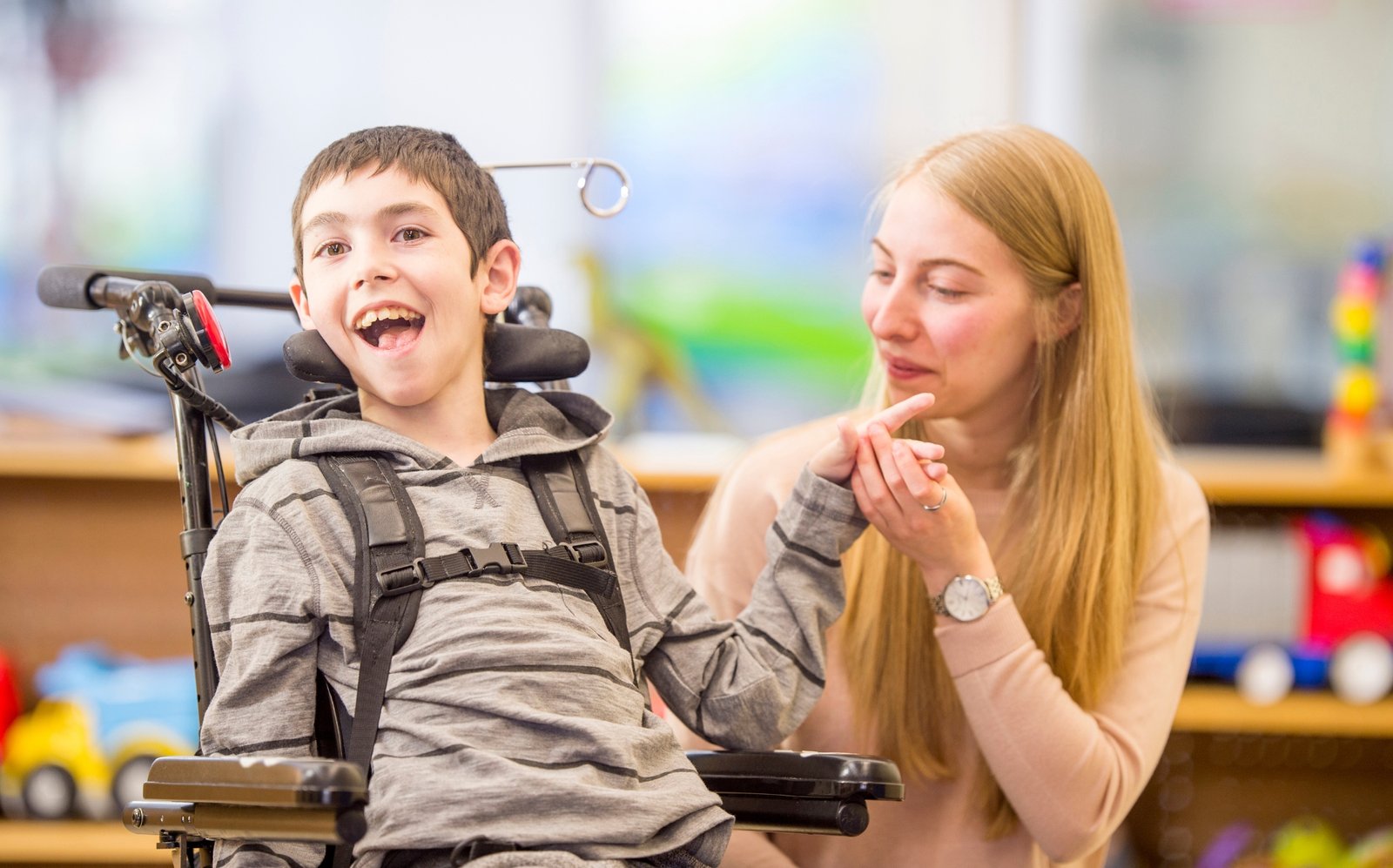
Early Intervention: Importance for Children with Disabilities
Early intervention refers to the proactive and systematic support provided to children with developmental delays or disabilities during their crucial early years of life. This approach is designed to identify and address potential challenges as early as possible, allowing for timely and tailored interventions that can significantly enhance a child’s overall development and quality of life. Early intervention programs encompass a range of specialized services, therapies, and educational strategies that target various aspects of a child’s growth, including cognitive, physical, communicative, social, and emotional development. The significance of early intervention for children with disabilities cannot be overstated, as it lays the foundation for their future success and integration into society.
Critical Developmental Period:
The early years of life, from birth to around six years old, are a critical period of rapid brain development and skill acquisition. During this time, the brain is highly plastic, meaning it is more adaptable and responsive to experiences and interventions. This plasticity gradually decreases as a child grows older, making early childhood a window of opportunity for shaping neurological pathways and foundational skills. For children with disabilities, capitalizing on this period through early intervention can lead to substantial improvements in various areas, potentially mitigating or even preventing some developmental challenges from becoming more entrenched over time.
Human development is a complex and intricate process, characterized by numerous stages and milestones that shape an individual’s physical, cognitive, emotional, and social growth. Among these stages, the concept of critical developmental periods holds particular significance. These periods are specific windows of time during which an individual’s experiences and interactions play a pivotal role in shaping their lifelong trajectory. Understanding the essence of critical developmental periods is essential as it sheds light on the importance of early experiences and provides insights into how we learn and adapt to the world around us.
Critical developmental periods, also referred to as sensitive periods or windows of opportunity, are distinct timeframes in a person’s life when the brain and body are exceptionally receptive to specific types of stimuli and experiences. These periods mark optimal windows for acquiring certain skills, behaviors, or capabilities. While development continues throughout life, these critical periods are characterized by heightened neuroplasticity – the brain’s ability to reorganize itself in response to learning – which enables rapid and efficient acquisition of particular traits.
Individualized Support:
Early intervention programs are tailored to each child’s unique needs and strengths. Professionals such as developmental pediatricians, speech therapists, occupational therapists, and educators collaborate to assess a child’s abilities and challenges comprehensively. Based on these assessments, an individualized intervention plan is developed to address specific areas of concern. This personalized approach recognizes that every child’s journey is different and acknowledges that early intervention is not a one-size-fits-all solution. By focusing on individualized support, children with disabilities are more likely to experience meaningful progress in their development.
Family-Centered Approach:
One of the cornerstones of early intervention is its family-centered approach. Recognizing that parents and caregivers play a pivotal role in a child’s development, early intervention programs actively involve families in the planning and implementation of interventions. This collaborative approach empowers parents to become advocates for their child’s needs and equips them with the knowledge and skills to support their child’s development at home. Moreover, early intervention recognizes that families are the primary influence on a child’s growth during these formative years. By strengthening family capacities, the benefits of intervention extend beyond therapy sessions and permeate the child’s daily life.
The family-centered approach is a philosophy and methodology that places families at the core of decision-making, support, and care processes across various contexts, including healthcare, education, social services, and community development. This approach recognizes the integral role of families in shaping individuals’ lives, especially children, and emphasizes collaboration, respect, and empowerment to achieve positive outcomes. By involving families as active participants, this approach seeks to create a holistic and supportive environment that nurtures stronger bonds and facilitates overall well-being.
At its heart, the family-centered approach acknowledges that families are experts on their own lives and circumstances. Instead of professionals solely dictating strategies or interventions, the approach engages families as partners in identifying goals and developing plans. In healthcare settings, for instance, medical decisions may be made collaboratively, considering both the expertise of healthcare providers and the intimate knowledge families possess about their loved ones’ preferences, needs, and histories. This shared decision-making not only leads to better outcomes but also enhances families’ sense of ownership and responsibility in the care process.
Furthermore, the family-centered approach recognizes the diversity of family structures and dynamics in today’s world. It respects various cultural, socioeconomic, and personal differences that shape families’ experiences. Professionals adopting this approach aim to create an inclusive environment where all families feel valued and understood. This inclusivity is particularly significant in education, where teachers and administrators work to involve families in their children’s learning journeys, respecting different parenting styles and cultural values to create a comprehensive educational experience.
A core principle of the family-centered approach is open communication. Professionals actively seek families’ input, listen to their concerns, and provide them with relevant information. Effective communication helps build trust and ensures families feel heard and respected, thereby strengthening the partnership. In social services, this approach means involving families in the design and implementation of intervention plans, recognizing their innate strengths and involving them as agents of change in situations such as overcoming financial difficulties or addressing behavioral issues.
Maximizing Developmental Milestones:
Early intervention targets specific developmental milestones that are crucial for a child’s future success. For instance, language and communication skills are pivotal for social interaction and academic achievement. Early speech therapy can help children with speech delays or language disorders develop effective communication skills, reducing frustration and facilitating smoother interactions with peers and adults. Similarly, interventions aimed at improving fine and gross motor skills can enhance a child’s ability to engage in everyday activities and participate in play, setting the stage for improved independence and integration into school and community environments.
Every child’s journey of growth is marked by a series of developmental milestones, which encompass various physical, cognitive, social, and emotional achievements. These milestones provide a framework for understanding a child’s progress and ensuring they are on track for healthy development. Parents, caregivers, and educators play a pivotal role in maximizing these milestones, creating an environment that fosters learning, exploration, and skill-building.
Reducing Academic and Social Disparities:
Children with disabilities often face academic and social disparities that can persist into adulthood. Without proper support, they may struggle to meet educational benchmarks and form meaningful relationships with peers. Early intervention can mitigate these disparities by equipping children with the skills and tools they need to succeed in both academic and social settings. By addressing challenges early, children are better prepared to transition into formal schooling and navigate the complexities of social interactions, thus reducing the risk of isolation and fostering a sense of belonging.
Long-Term Cost Savings:
Investing in early intervention yields substantial long-term cost savings for individuals and society as a whole. Research consistently demonstrates that the costs associated with providing early intervention services are significantly lower than the expenses incurred when addressing challenges later in life. Without early support, developmental delays and disabilities can become more entrenched, requiring more intensive and costly interventions during adolescence and adulthood. By addressing these issues early, individuals are better equipped to achieve independence, pursue employment, and contribute positively to their communities, ultimately decreasing the strain on social welfare systems.
Inclusive Society:
A fundamental principle of early intervention is fostering inclusivity. By providing children with disabilities the support they need from an early age, society sends a powerful message that every individual deserves equal opportunities to thrive. Inclusion benefits not only the child with a disability but also their peers, who learn valuable lessons about empathy, diversity, and acceptance. Early intervention paves the way for an inclusive educational system that values and accommodates the needs of all students, setting the stage for a more equitable society.
Conclusion:
Early intervention stands as a beacon of hope for children with disabilities and their families. By seizing the opportunity presented by the critical early years, this approach has the potential to reshape the trajectory of a child’s life. Through individualized support, family engagement, and targeted interventions, children can overcome challenges, maximize their potential, and actively participate in the world around them. As society continues to recognize the immense value of early intervention, efforts to ensure that every child receives the support they need are not only an investment in their future but also a testament to our commitment to a more inclusive and compassionate world.



